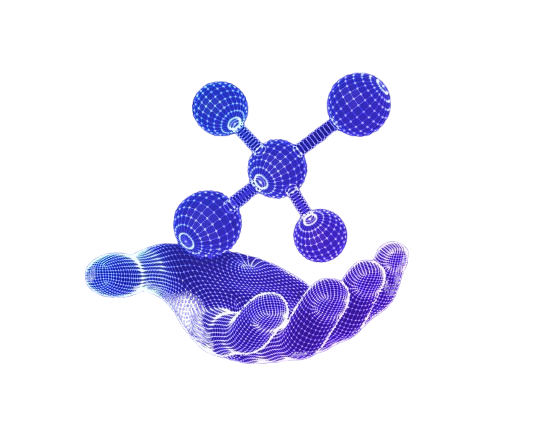The Future of Chemistry Jobs in the Era of Artificial Intelligence
Discover how artificial intelligence is revolutionizing chemistry jobs, from drug discovery to material science. Learn about new career opportunities, required skills, and the evolving role of chemists in the AI era.
The integration of artificial intelligence (AI) into various scientific fields is reshaping the job market, and chemistry is no exception. With AI revolutionizing research, production, and data analysis, the role of chemists is undergoing significant transformation. This article explores how AI is influencing chemistry jobs, emerging career opportunities, and the skills needed to thrive in this evolving landscape.
1. How AI is Changing the Chemistry Landscape
AI is playing a pivotal role in automating and enhancing chemistry processes. Here are some of the most notable applications:
- Drug Discovery and Development: AI accelerates the identification of potential drug candidates by analyzing large datasets, reducing the time and cost of drug development.
- Material Science: Chemists are using AI to predict the properties of new materials, leading to breakthroughs in renewable energy, electronics, and nanotechnology.
- Chemical Synthesis: Machine learning models optimize reaction pathways, making chemical synthesis faster and more efficient.
- Environmental Chemistry: AI helps monitor and analyze pollutants, predict environmental changes, and design eco-friendly solutions.
2. Career Opportunities in AI-Driven Chemistry
The AI revolution is creating new opportunities for chemists in diverse roles:
- Data Scientist in Chemistry: Chemists with coding and data analysis expertise can work on big data interpretation in scientific research.
- AI Specialist in Drug Development: Combining knowledge of molecular biology and AI, these professionals optimize drug formulation and testing.
- Material Design Engineer: Professionals use AI to design sustainable and advanced materials for industries like aerospace and manufacturing.
- Automation Specialist: Chemists collaborate with engineers to develop AI-driven lab automation systems, enabling faster experimentation.
- Computational Chemist: These roles involve creating algorithms to simulate molecular behaviors and reactions, paving the way for groundbreaking discoveries.
3. Skills Chemists Need to Thrive in the AI Era
To remain relevant in the job market, chemists must adapt and acquire new skills:
- Programming and Data Analysis: Proficiency in Python, R, or similar languages is becoming essential for analyzing chemical datasets.
- Machine Learning Expertise: Understanding algorithms and AI frameworks helps chemists design and interpret AI models.
- Interdisciplinary Collaboration: Working knowledge of related fields like bioinformatics, engineering, or environmental science enhances versatility.
- Automation Tools: Familiarity with laboratory automation tools and software like ChemDraw, Schrodinger, and Gaussian is crucial.
- Soft Skills: Critical thinking, problem-solving, and adaptability remain essential as technology evolves.
4. Challenges and Ethical Considerations
While AI brings immense potential, it also raises concerns:
- Job Displacement: Automation may replace routine tasks, shifting demand to more specialized roles.
- Ethical Issues: Ensuring AI is used responsibly, particularly in drug discovery and environmental impact analysis, is vital.
- Skill Gap: Rapid technological advancements require continuous education and training for chemists to stay relevant.
5. The Human Touch in Chemistry Jobs
Despite AI’s capabilities, human expertise remains irreplaceable in many areas of chemistry:
- Creative Problem-Solving: AI can analyze data, but humans excel at innovative thinking and hypothesizing novel approaches.
- Ethical Oversight: Chemists provide the moral and ethical judgment necessary for applications like genetic engineering and pharmaceutical development.
- Hands-On Experimentation: AI supports but cannot replace the hands-on skills required for complex laboratory tasks.
Conclusion
The future of chemistry jobs in the era of artificial intelligence is promising but demands adaptability. Chemists who embrace AI as a tool to enhance their capabilities will find exciting opportunities in drug discovery, material science, environmental solutions, and beyond. By learning new technologies and honing interdisciplinary skills, chemists can secure a vital role in shaping the future of science and technology.
Links
- Educational Resources
- Search for edX Artificial Intelligence in Chemistry Course on edX.org.
- Look for Coursera Machine Learning in Chemistry by searching Coursera.org.
- Industry Applications
- For drug discovery and AI, check journals like Nature or ScienceDirect.
- Search for AI in Material Science applications on ScienceDirect.
- Professional Development
- Search AI-related Chemistry Jobs on job boards like Indeed.com.
- Look for AI courses for chemists on platforms like Udemy.
- Emerging Technologies in Chemistry
- Visit ChemistryWorld and search for Automation in Chemical Synthesis.
- Look for AI in Green Chemistry articles on Green Chemistry Journal.
- Ethical and Societal Considerations
- Visit Bioethics.net and search for AI ethics in drug development.
- Search for articles on environmental impact and AI in chemistry at Environmental Chemistry.


